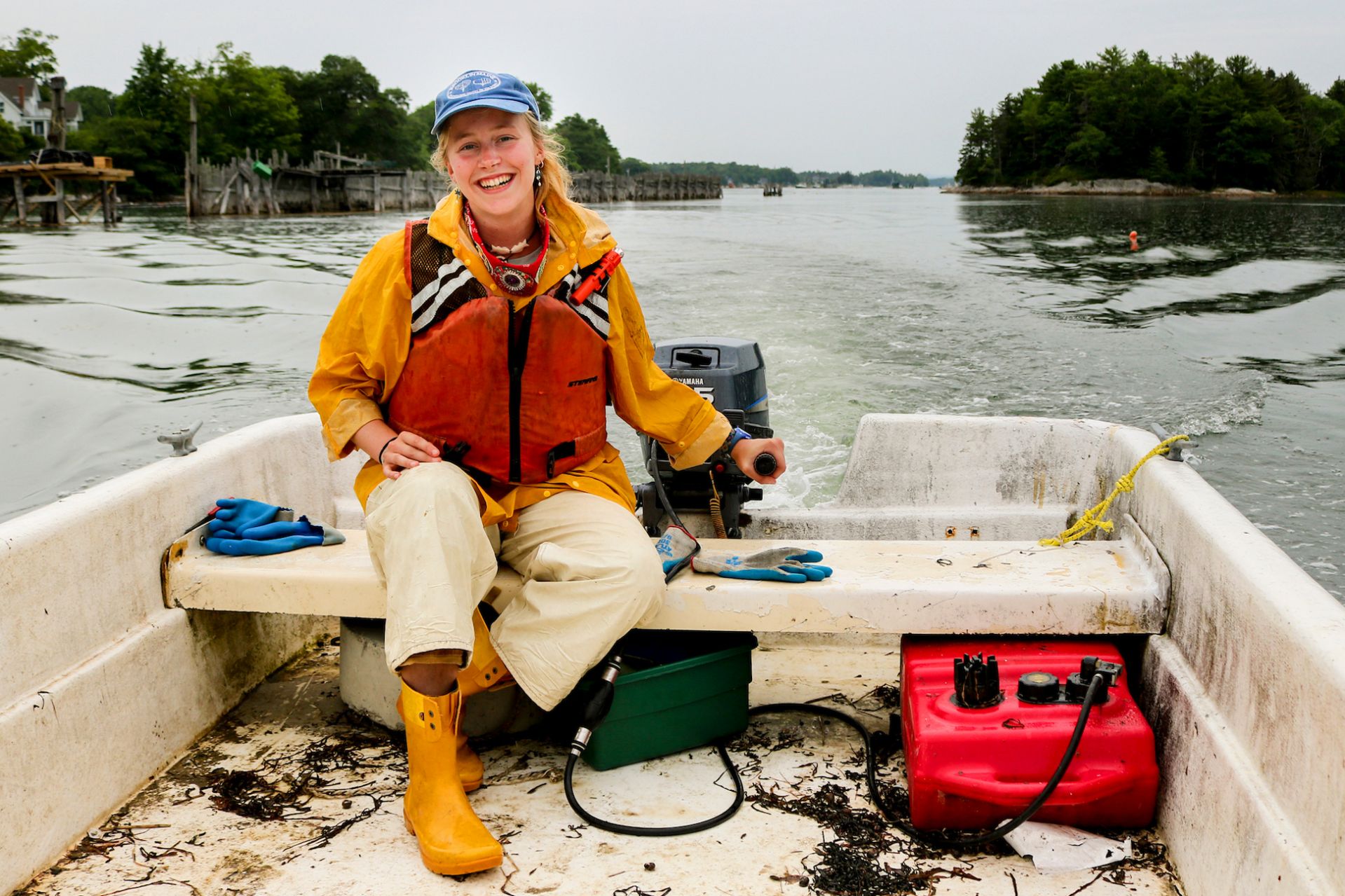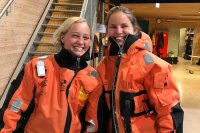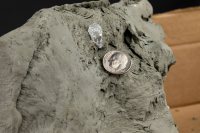
‘CSI: Bates’ is just one of the hits on the Short Term schedule
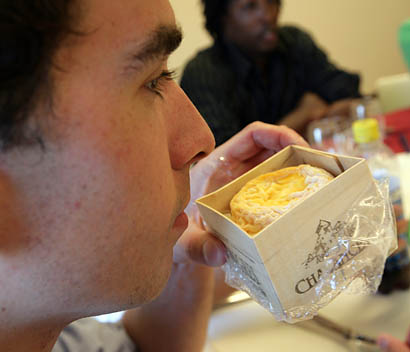
Josh Parker ’08 of Winchester, Mass., a student in the Short Term course “Food, Culture and Performance,” inhales the aroma of Langres, a French cheese.
Spring has sprung at Bates College, and students are taking advantage of the weather by flinging Frisbees on the Quad, relaxing by the Puddle…or digging for “bodies” at three mock crime scenes during Bates’ annual five-week Short Term.
Short Term, an integral part of Bates tradition since 1966, began as a way to enable students to graduate in three years instead of four. But it quickly grew to become one of the most beloved times of campus life, effortlessly blending dynamic creativity with academic rigor.
For faculty, Short Term can serve as a testing ground for new approaches to presenting a topic. Take the gravediggers: They’re actually students in visiting assistant professor Stephanie Richards’ biology course “Forensic Science.” Last fall, with her 9-year-old son Tristan, Richards ’84 buried the “bodies” — actually plastic human skeletons — along with other evidence. Now students in her course will dig up the bodies, identify and analyze the clues, and try to solve the crime.
Richards’ students are studying a gamut of scientific disciplines from anatomy to physics, and are learning forensic field and lab procedures. A couple of practicing experts with Bates connections are helping out. Dr. William Bligh-Glover ’90, a county pathologist in Ohio, will discuss autopsies and causes of death. Attorney Jay Shapiro P’10, a former prosecutor in New York state, will discuss a case he tried, complete with courtroom transcripts.
Richards’ class isn’t the only one racking up lab time. Students in the “Experimental Biology” course are learning the fundamentals of data collection, interpretation and presentations. Their Short Term includes two weeks at the Mount Desert Island Biological Laboratory in Salisbury Cove, Maine, where their work will include DNA sequencing and confocal microscopy.
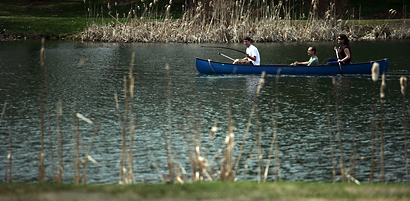
Geology students in the course “Limnology and Paleolimnology of Lakes in Northern New England” explore a pond.
In fact, travel during Short Term has a quality all its own. Students in German professor Dennis Sweet’s interdisciplinary unit “Wake Up!” are also spending two weeks off campus, but in very different activities — such as a week-long meditation retreat and a week in the wilderness. The course is designed to provide a rigorous experiential journey to self-awareness, appreciation of nature and social engagement.
- In Vietnam: Short Term students studying the country’s history and culture will post comments and photos.
Another interdisciplinary course with an off-campus angle — this time, downtown Lewiston — is a treat for both mind and mouth. “Food, Culture, and Performance” examines the idea of cultural engagement through food. Visiting Assistant Professor of African American Studies Myron Beasley is examining the meanings across cultures of food and eating, with particular attention to how people define themselves through the ways they eat.
Sometimes, too, off-campus comes to Bates. Students in theater professor Martin Andrucki’s theater production workshop are developing and producing contemporary one-act plays from Central Europe, including the first English-language production of the newest play by Hungary’s leading dramatist, György Spíro, in a translation that Bates commissioned. Spíro is visiting Bates as a learning associate to discuss his work and contemporary cultural affairs in Hungary and Central Europe.
Still other students play Short Term for laughs — sort of. Assistant Professor of Psychology Helen Boucher’s course “The Psychology of Humor” examines how theory and research have been brought to bear on the study of humor.
Highlights include a visit from Chet Clem ’05, editorial manager at the satirical newspaper The Onion, a field trip to a Portland comedy club and the opportunity for students to try their own hand at improv.
Bold experimentation and outside-the-box education may be Short Term’s most obvious qualities, but one of its greatest strengths is the level of concentration it allows a student to bring to a singular subject. “Introduction to Historical Methods,” nicknamed “History Hell,” and “Introduction to Abstraction,” affectionately deemed “Math Camp,” are legendary among alums for building both intellectual intensity and lasting friendships.
Whether learning about laughs, attaining self-actualization or laboring on an intensive project in Lewiston, Short Term offers opportunities for study rarely seen during the traditional school year. Consoled by the beautiful spring weather, students immerse themselves in subjects that often take them far outside their comfort zones.
by Becca Chacko ’10
